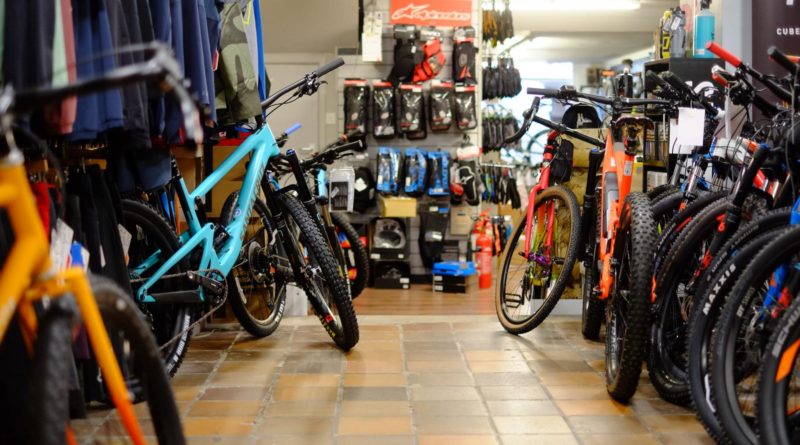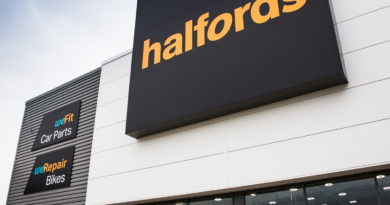Sales Trainer’s comment: Anticipating customer behaviour can give you a sales advantage
Spotting the type of customer coming through your bike shop door can give you an advantage in anticipating their behaviour and, crucially, closing a sale. Sales training expert Colin Rees talks human nature…
If you have been following the series of articles concerning combating the internet competitor, you will know we are looking for areas where the internet cannot compete. These must help any bike shop owner anywhere to complete a strategic plan that will not cost a fortune. So far, we have covered a level of increased service we called customer care and the sort of shopping experience basics, to encourage repeat business. 
By way of an applicable digression, it is important in planning a training schedule, to take note of something that can work for profits and, perverse it may be, at the same time, against them. I am talking about human behaviour.
In past articles, I mentioned the four basic types of human beings I recognise by the Q numbers, Q1 for instance often being the cycle enthusiast, dominant by nature, needing to display the sales person’s inferiority against his or her apparently amazing knowledge and capability. We have all served them.
The point being that spotting the type of human you have in front of you can be a terrific advantage. You know how they are going to act, the words they will use, what they need from us and the best way to lead them to close their own sale. So it goes with the four basic types which in turn, lead down to 32 ‘types’ of human being.
In the same field as human behaviour is human nature. Inbred in all of us are behaviours that appear automatic; things we think we know; ways we act that were determined a very long time ago and stay with us… because they are human nature.
A great example of that is in agreeing discounts with a customer. Without reading on, get a scrap of paper and write down what percentage you would probably ask for, if you were requesting a discount. I will write it later on but I believe, even through these pages, I can predict in 99% of cases, what was written. That’s because, it is ingrained in us, and as such, is very very dangerous because that is ‘an expectation’.
Expectations are the area of selling every sales person is up against as it is the measure a customer makes against the service he receives, the product quality he gets and many other issues. An expectation is often contrary to reality. The quality of a bike might be second to none but that doesn’t mean everyone thinks that, despite it being a fact. Every complaint that arises does so because the customer’s expectation has not been met, not because there is anything wrong with the product. It’s human nature at its most damaging.
We are all different. Life gets really interesting when we take a look at human behaviour in selling. Anyone who has not spent time thinking about this is one trick behind. This article is
pure empathy.
The big killer to a sizeable sale could be as simple as a human nature factor.
If I asked any person on the street what discount they would expect when they bought a bike, I would wager they would say, 10% only because we are all brought up to ‘think’ that figure. So if
you went into a shop asking for a discount, your expectation would be 10%. That’s £300 on a £3,000 bike. It is human nature, we have all grown up with it as standard.
So, if they are offered any less, it does not meet their in-built expectation and produces a ‘negative result’ intheir head. Any negative can lead to a lost sale or afterwards, a customer complaint because expectations have not been met. On the other hand, if they are offered something less, in a different form, the sales person is acting outside the confines of human nature.
Discount is just an example. Throughout the selling process customer expectations, built from human nature, govern their ‘experience’. It is natural to expect to be well treated, well looked after and by nice people.
The challenge to the sales person is to beat any adverse expectation, after first throwing a few hurdles in the way. Back to our example of discounts, on sales training courses, we talk about pound notes. Would a customer be as happy with a few £5 pound notes? Well, as with all selling, it’s all about how you do it (more on that in the next article). So what other places can we see human nature kicking us in a nasty place?
A person who has not been trained will take the easy way to a sale. Human nature kicks in if he hasn’t been warned of the problem. I have seen staff at the till, offering discounts when a customer hasn’t even asked. It’s because human nature tells him that the lower the price, the more happy the customer will be, and the more likely that person will be to make the purchase – and he’s not wrong but it’s hardly good, sustainable business continually to erode net profit. I call this, the ‘knock something off and make the sale’ syndrome but I have to be careful because the bike trade is steeped in a discount culture and I have been accused of ‘banging on’.
People have not understood my reactions when told they give free goods. This is justified, they think, by the low buying price but is this not just feeding a customer with the expectation that they will get it every time? That’s human nature again.
It is also the reason why we really have to work at getting sales staff to offer all customers associated products to those being bought. It is not ‘human nature’ to do so. A more critical area is when training how to close a sale. All too often I hear: “It sounds too pushy”. Yet if everyone closes every sale, sales rise by 10%. That particular subject is all about how the customer is thinking at the time, what do we say when he says ‘no’, all the time? The trainer is fighting that in-built human nature negative. In fairness, it started a long time ago. “Can I have some sweets Mum?” “No.” We all felt we were entitled to sweets didn’t we? When we are told we cannot have them, we were hardly likely to understand why not. It can be an uphill journey explaining how to overcome the fear of rejection in us all but once again, if everyone in every shop closes every sale, that’s another 10% increase.
So fear of rejection, not knowing what to do if the customer says no, forgetting, or never being told we should close every sale are all reasons why most sales people in retail stores do not do it – and lose their stores 10% potential increased sales. If you get into the science of the transaction, the customer actually wants you to ask. If you miss it, you will hear, yet again, those immortal words; “I’ll go away and think about it” as they extricates themselves from the situation. Dead in the water, nowhere to go…actually, there is.
A more recent area where human nature comes into play is when a customer says he can buy it cheaper on the internet. If someone says that, is there anywhere to go? Human nature dictates there isn’t – what can you say? It is impossible to compete with paying 20% less for the same thing; how on earth could it be possible to turn that one around…says the average sales person, because it is human nature that some things are insurmountable. But sit down and plan as a team for half an hour and it is likely you will be able to put a number of barriers up that may, at least, make some people think twice and save some of those lost sales. Personally, selling the value of your store, what they get for that 20%, is the starting point if you do have the best bike shop in town, I would use it first. More next time.
Read more from Colin Rees: How the marginal gains approach can add up to profitability



